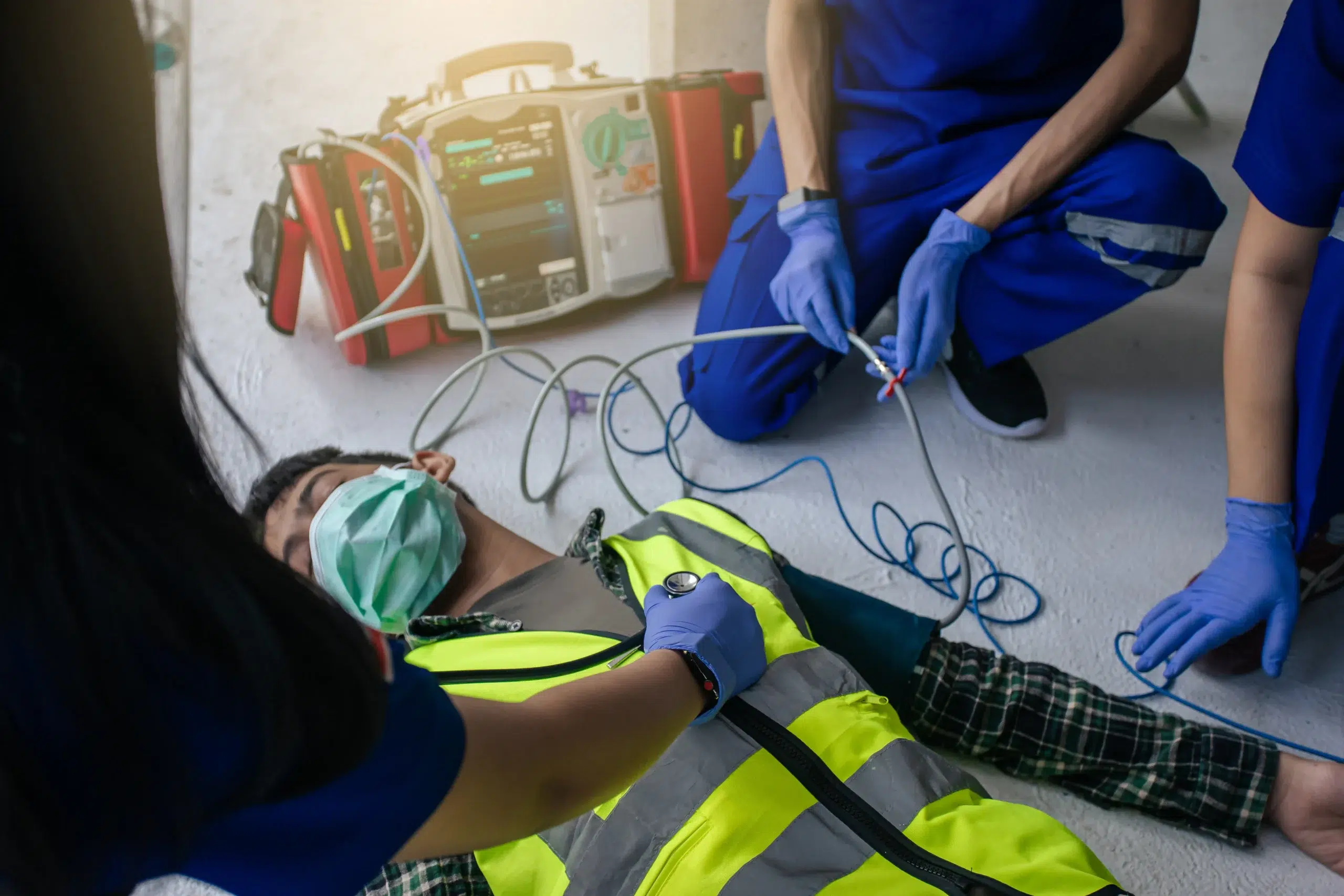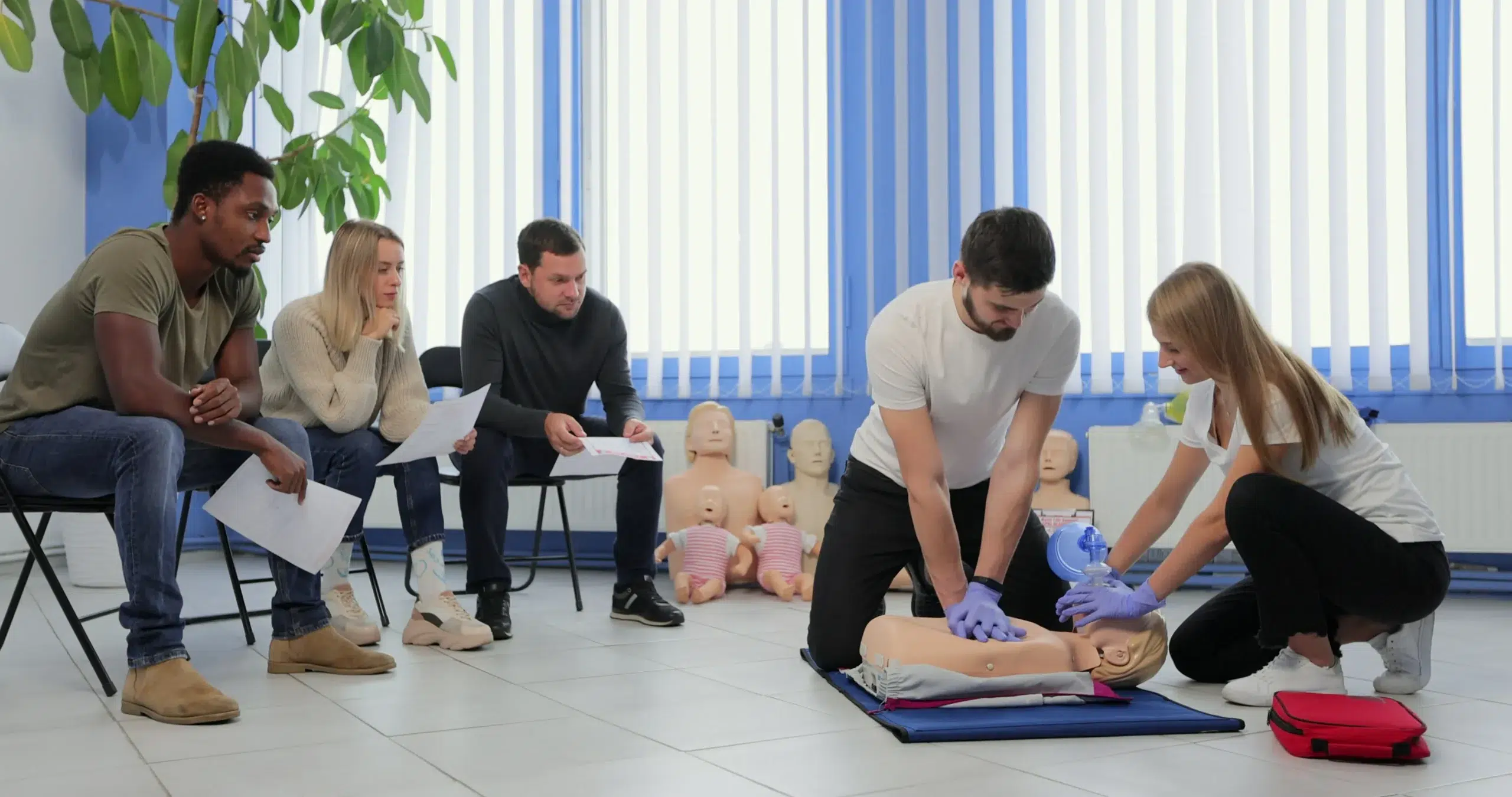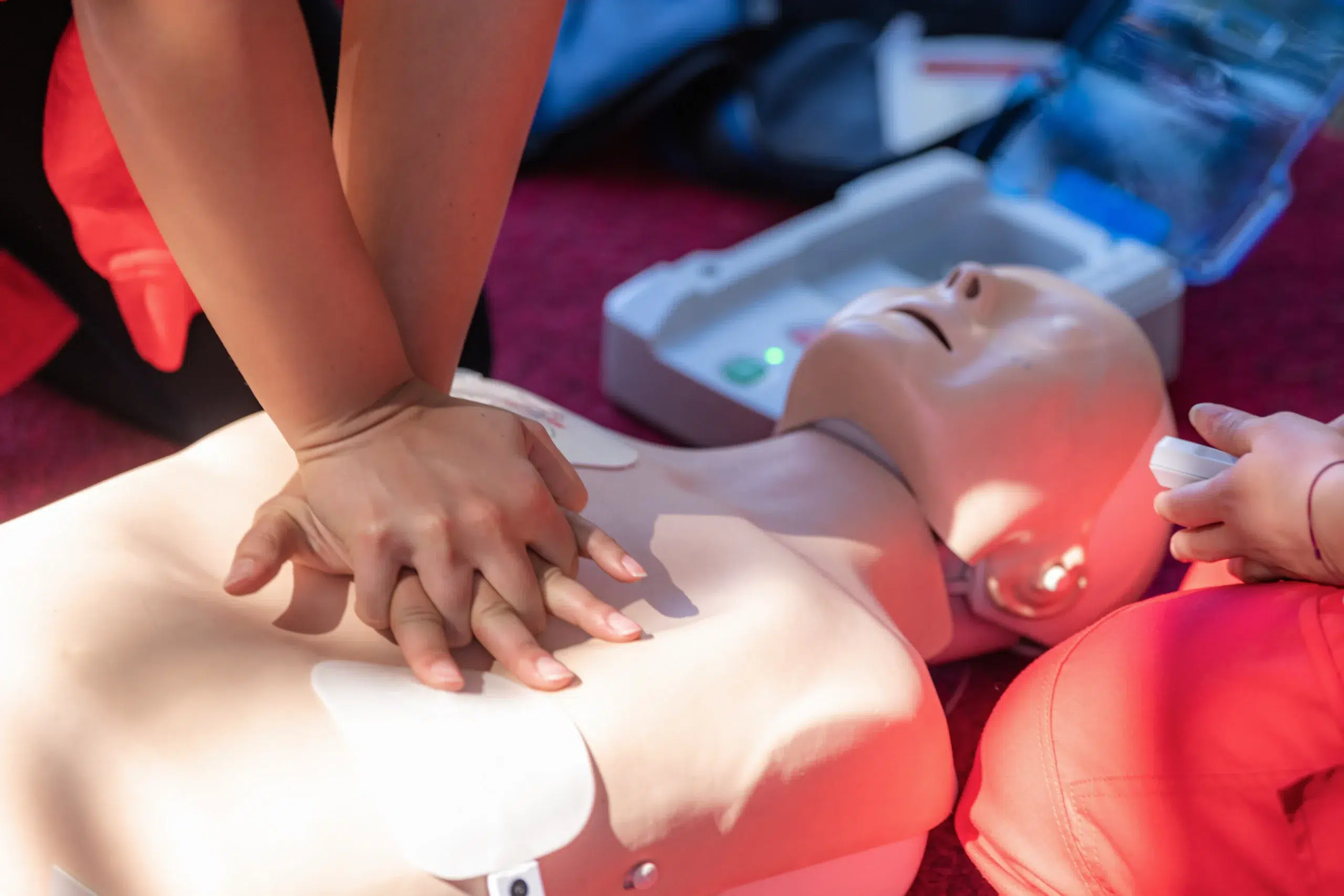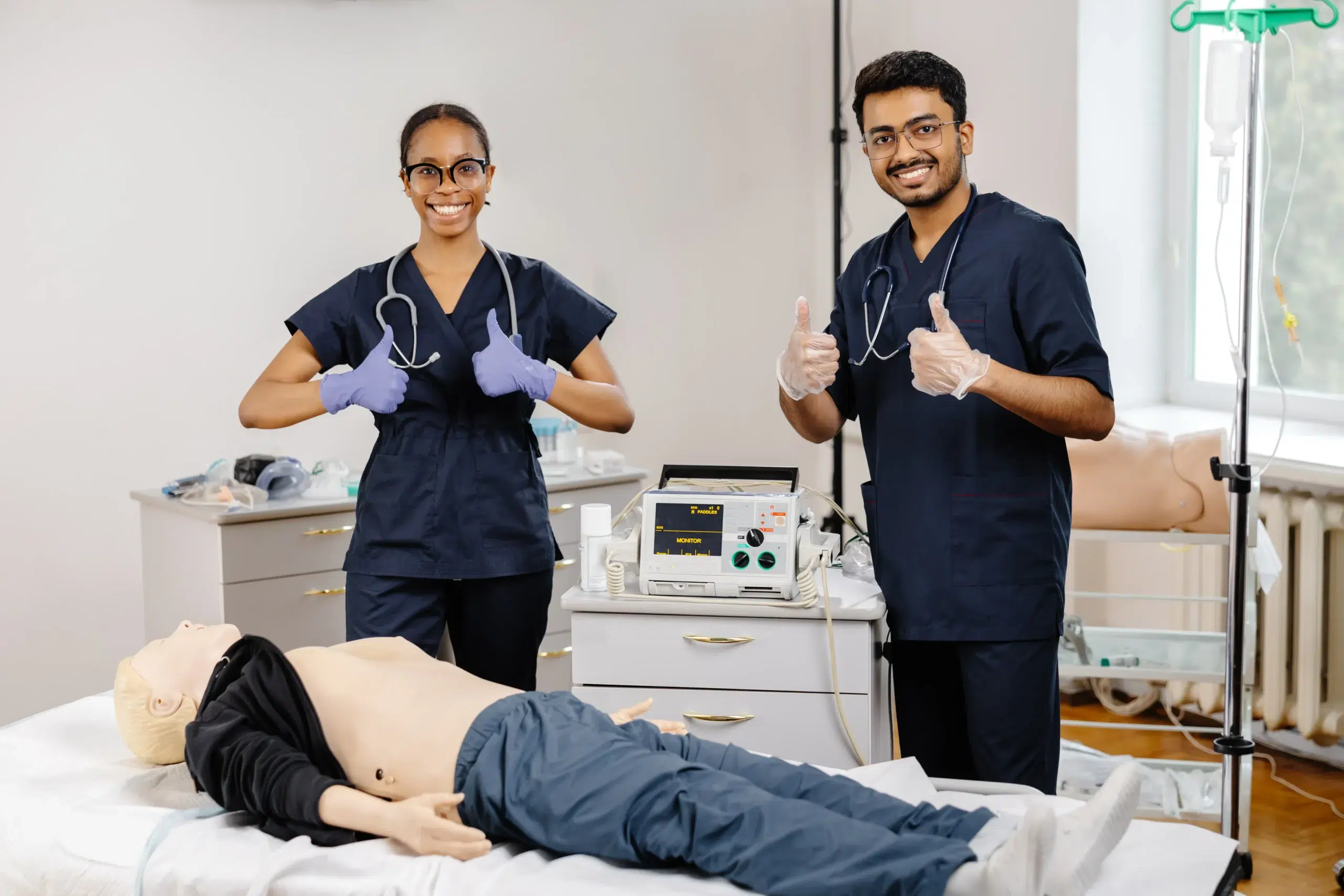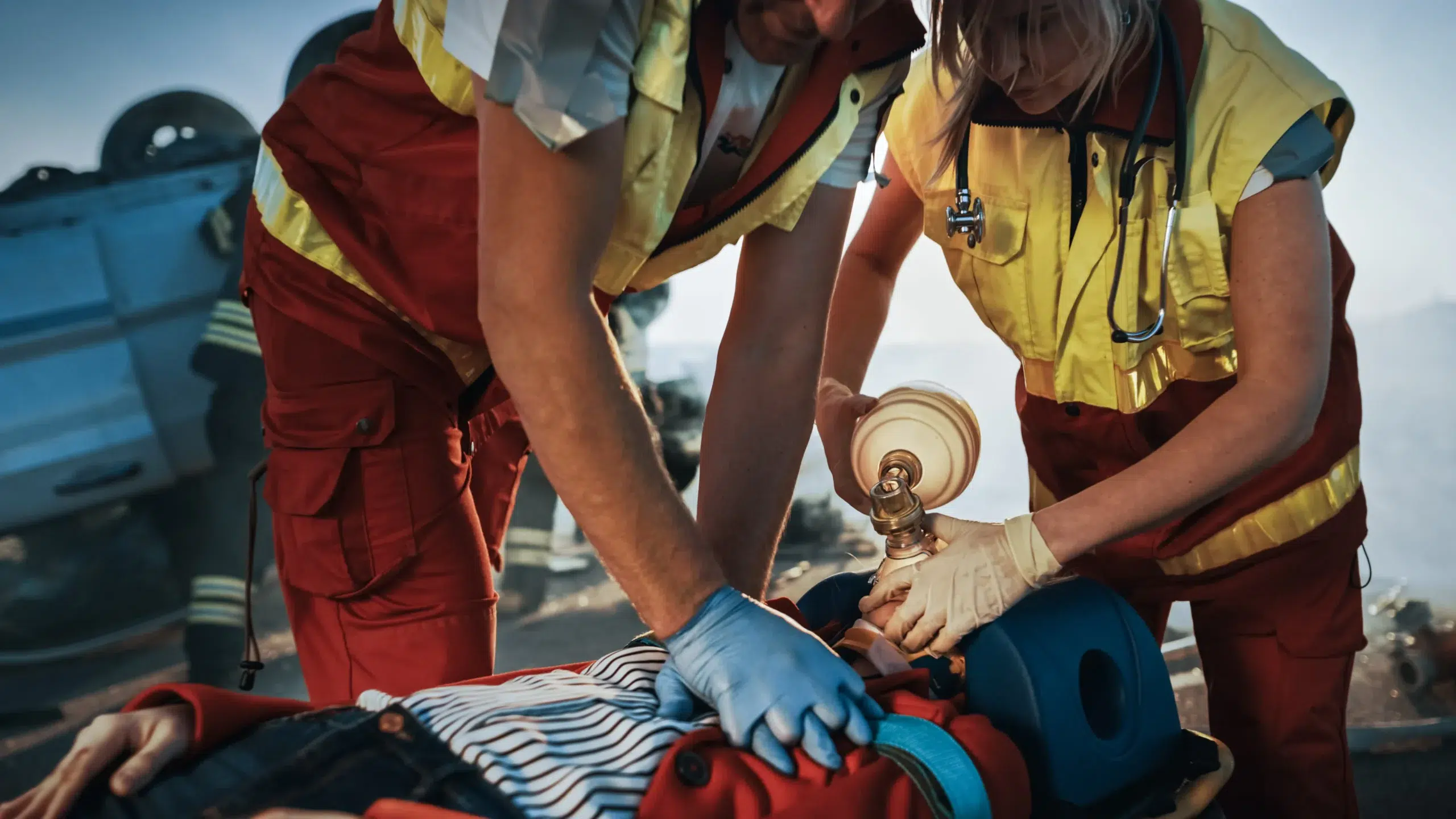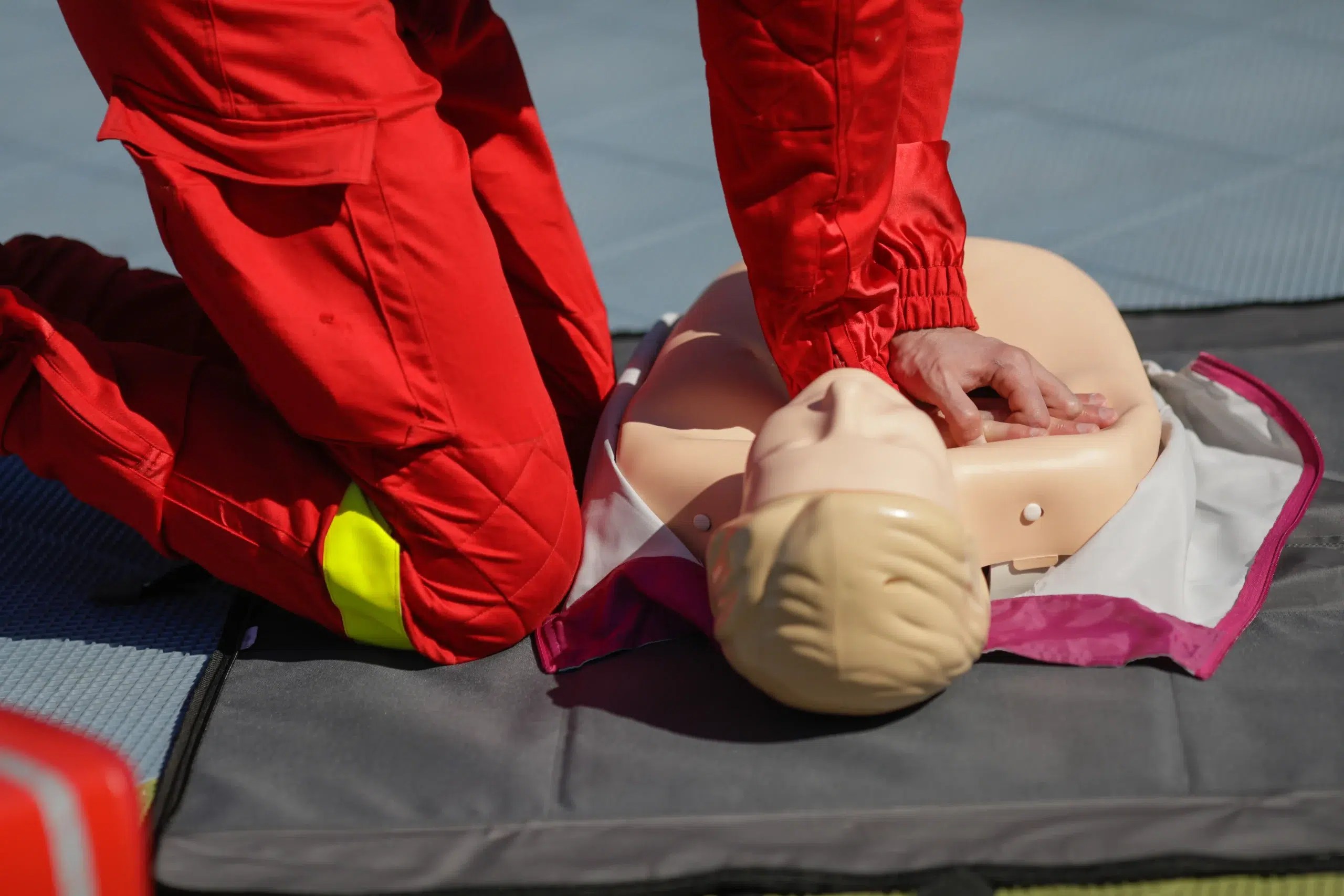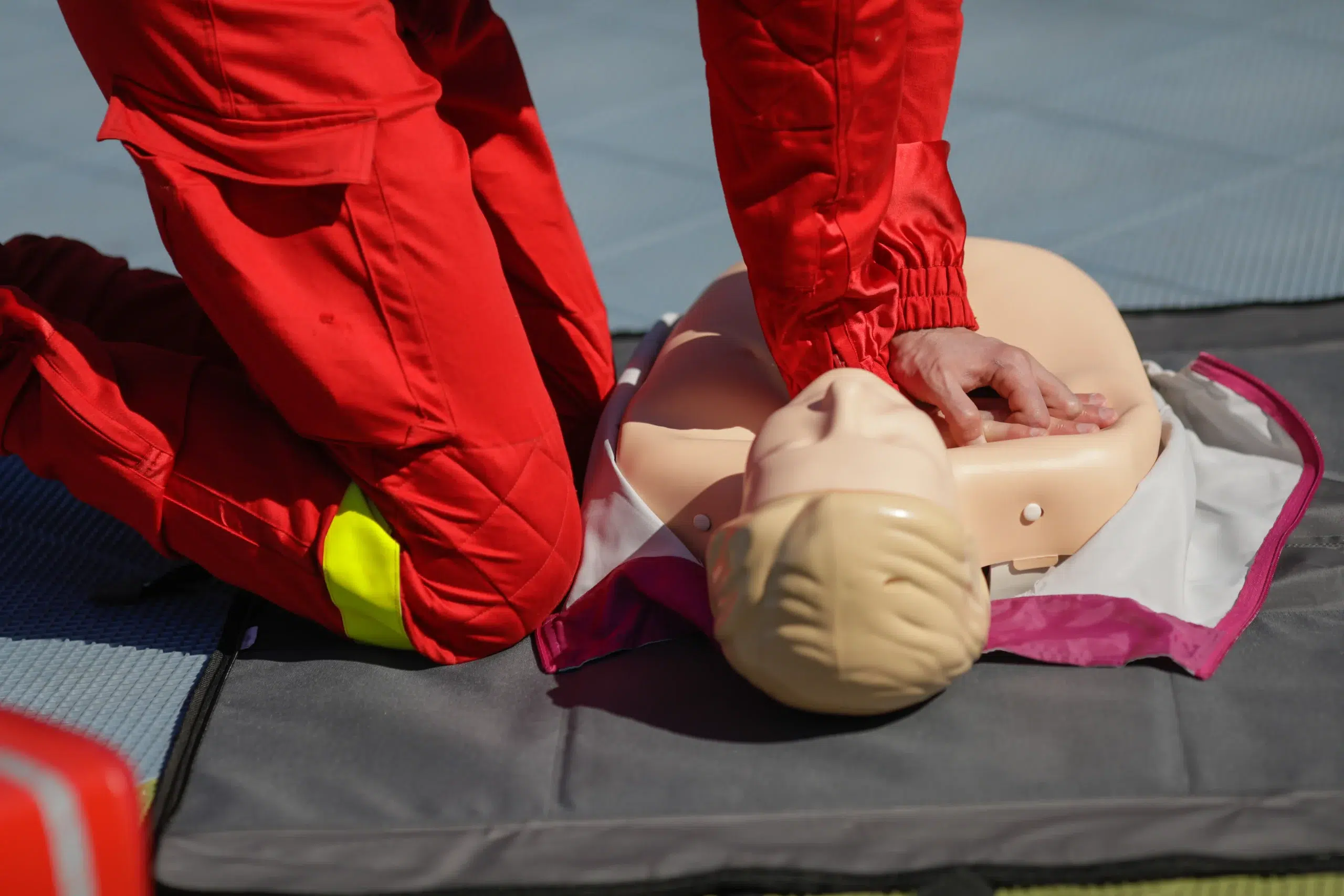Emergencies don’t wait, and neither should your training. If you’re looking for BLS courses in San Jose, you’ve come to the right place. This guide is your one-stop resource for understanding BLS certification, finding the right course, and maximizing the benefits of this essential training. We’ll cover the different types of BLS courses available in San Jose, from traditional classroom settings to flexible online options, and help you choose the best fit for your learning style. We’ll also discuss the importance of American Heart Association certification and how it can impact your healthcare career.
Key Takeaways
- BLS is a foundational skillset for healthcare providers: From CPR and airway management to using an AED, BLS training gives you the tools to handle emergencies and improve patient outcomes. It’s a must-have for anyone working in healthcare.
- Choose a BLS course that works for you: Explore different learning formats (online, in-person, blended) and find a reputable provider that offers AHA-certified training. Consider factors like cost, schedule, and instructor experience.
- Stay up-to-date with your BLS certification: Renew your certification every two years to maintain your skills and knowledge. This shows your commitment to providing high-quality care and keeps you competitive in your field.
What is BLS?
BLS stands for Basic Life Support. It’s the level of medical care used by first responders like EMTs, paramedics, and other healthcare providers in emergencies. Think of it as the foundation for saving lives when someone’s breathing or heart stops. BLS addresses life-threatening situations like cardiac arrest, respiratory distress, and obstructed airways. It focuses on immediate intervention and stabilization until more advanced medical help arrives. Safety Training Seminars offers a range of American Heart Association certification courses, including BLS, right here in San Jose.
What BLS Does
BLS isn’t just about knowing what to do—it’s about being able to do it quickly and effectively under pressure. Training emphasizes hands-on practice and realistic scenarios. This repetition builds muscle memory and confidence, allowing healthcare professionals to respond swiftly and calmly in real emergencies. BLS certifications require regular renewal to ensure providers stay sharp and up-to-date on the latest guidelines.
Why BLS Matters in Healthcare
In healthcare, seconds can make all the difference. High-quality BLS is a critical link in the Chain of Survival, the sequence of actions that improve survival rates from cardiac arrest. When performed correctly, according to evidence-based guidelines published by the American Heart Association, BLS significantly increases a patient’s chances of recovery. Beyond immediate care, BLS certification demonstrates that healthcare professionals meet the required standards for providing emergency care, ensuring patient safety and a high quality of care. It’s a fundamental skill for anyone working in the healthcare field. For those in San Jose, Santa Clara, and Sunnyvale, CPR and First Aid training is readily available through various providers.
BLS Course Formats in San Jose
Choosing the right BLS course format depends on your learning style and schedule. Here’s a breakdown of the options available in San Jose:
In-Person BLS
In-person BLS courses offer hands-on learning and direct interaction with an instructor. This format allows for immediate feedback and personalized guidance as you practice essential skills. For those who thrive in a traditional classroom setting and value face-to-face instruction, in-person training provides a structured and supportive learning environment. The American Red Cross offers in-person BLS certification and recertification courses in San Jose.
Online BLS
Online BLS courses offer flexibility and convenience for those with busy schedules or limited access to in-person classes. You can learn at your own pace and complete the coursework from anywhere with an internet connection. Online BLS certification is a popular choice for healthcare professionals juggling work and personal commitments. It’s important to choose a reputable provider that aligns with the American Heart Association guidelines to ensure you receive high-quality training. If you learn well independently and need a flexible schedule, an online course might be a good fit.
Blended Learning BLS
Blended learning combines online learning with in-person skills practice. This format typically involves completing the cognitive portion of the course online, followed by a shorter, hands-on skills session with an instructor. Many BLS providers offer this blended learning format. This approach can be particularly helpful for those who want the convenience of online learning but also value the opportunity for hands-on practice and feedback.
Where to Find BLS Courses in San Jose
Finding the right BLS course provider is an important step. Here are a few options to explore in San Jose:
Safety Training Seminars
Safety Training Seminars offers a comprehensive selection of American Heart Association certification courses, including BLS, ACLS, PALS, and First Aid. They also provide EMSA-approved training. Check their course schedule and learn more about their offerings.
American Red Cross
The American Red Cross is a well-known provider of BLS certification courses. Their courses focus on giving you the skills to respond to medical emergencies, with various course formats and schedules available.
CPR Training Center
CPR Training Center in San Jose offers a range of courses, including BLS, ACLS, PALS, and First Aid. They provide American Heart Association Certification, ensuring their training is widely recognized.
American Heart Association
The American Heart Association sets the guidelines and standards for BLS, but they don’t typically offer courses directly. They train and authorize various organizations and instructors to deliver their curriculum. You can find AHA-certified BLS training through different providers, including those listed here.
ACLS.com
ACLS.com offers online BLS certification, a convenient option for busy professionals, especially nurses. Their certification is accredited and accepted by many medical facilities. Remember that BLS certification often involves a hands-on skills assessment, so a fully online course might not meet all requirements. Always check the certification requirements with your employer or licensing board.
What Happens in a BLS Course?
A BLS course equips you with the essential skills to respond to life-threatening emergencies. It’s a comprehensive program covering everything from recognizing the signs of a cardiac arrest to providing high-quality chest compressions. Let’s break down what you can expect during your BLS training.
Skills You’ll Learn
BLS training emphasizes practical skills to manage cardiovascular emergencies effectively. You’ll learn how to perform CPR, including chest compressions and rescue breaths, for adults, children, and infants. The course also covers essential techniques for airway management and using an automated external defibrillator (AED). You’ll practice these skills in a controlled environment, building your confidence and competence in real-life scenarios. Beyond the technical skills, BLS courses also emphasize the importance of teamwork, communication, and quick thinking during emergencies. This overview of BLS training highlights the core components covered in these courses.
Course Length and Format
BLS courses are designed to be efficient and flexible, accommodating various schedules and learning preferences. Traditional, instructor-led BLS courses typically run for about 3.5 to five hours. For those seeking a more adaptable approach, blended learning combines online modules with shorter in-person skills sessions, often totaling three to four hours. This blended format allows you to learn the theoretical concepts at your own pace before practicing hands-on skills with a certified instructor.
Getting Certified
Upon successful completion of a BLS course, you’ll receive an American Heart Association (AHA) BLS certification, valid for two years. This certification demonstrates your proficiency in basic life support skills and is often a requirement for many healthcare positions. To maintain your skills and stay current with the latest guidelines, you’ll need to complete a recertification course every two years. This ensures you’re always prepared to provide the highest quality of care in emergency situations.
How Much Do BLS Courses Cost in San Jose?
Knowing the price range for BLS courses helps you budget effectively. Several factors influence the final cost, including the course format (online, in-person, or blended), the training provider, and included materials.
Comparing Prices
BLS course prices in San Jose typically range from $70 to $100. For example, CPR Training Center offers BLS provider courses for around $70. Required manuals or eBooks are often an additional cost, usually around $10. Look for group discounts; some providers offer a price break for multiple registrations. CPR Training Center, for instance, offers a discount for groups. Check with your chosen provider, like Safety Training Seminars, for specific pricing and available discounts. You can browse their course calendar for current pricing and schedules.
Discounts and Deals
While less common for BLS courses specifically, keep an eye out for occasional discounts. Organizations like the American Red Cross sometimes offer promotions on training materials or related courses like CPR and First Aid. Checking their website or contacting them directly is always a good idea.
Career Benefits
BLS certification is a valuable asset for many healthcare professionals and other fields. It demonstrates your commitment to patient safety and high-quality care. This training equips you with essential, recognized life-saving skills, which can open doors to career advancement. As the demand for certified healthcare professionals grows, having BLS certification can give you a competitive edge. Plus, a solid understanding of BLS fosters teamwork and a safer work environment.
Find the Right BLS Course
Choosing the right BLS course is a big decision. It’s an investment in your skills and your future, so you want a quality training experience. Here’s what to look for:
Accreditation and Recognition
First, confirm the program is accredited by a recognized organization like the American Heart Association (AHA). Safety Training Seminars, for example, offers a range of AHA-certified courses, ensuring your training meets industry standards. This accreditation is important for your credibility and demonstrates a commitment to high-quality instruction. Look for providers who clearly display their certifications and affiliations.
Instructor Experience
Experienced instructors can make all the difference. They bring practical insights, answer your questions effectively, and create a supportive learning environment. Research suggests that instructors who facilitate discussions and provide focused feedback enhance the learning process in BLS courses. When researching courses, look for information about the instructors’ backgrounds and experience.
Flexible Scheduling
Life gets busy, so finding a course that fits your schedule is essential. Look for providers that offer various class times, including evenings and weekends, or blended learning options that combine online coursework with in-person skills sessions. Safety Training Seminars offers daily classes in San Jose and other locations, giving you more choices. This flexibility can be incredibly helpful for those juggling work, family, and other commitments.
Support Resources
Finally, consider what kind of support the training center provides. Do they offer refresher materials, practice sessions, or ongoing support after you complete the course? BLS certification equips healthcare professionals with essential lifesaving skills, and continued support can help you maintain confidence and competence. A good training center will be invested in your long-term success.
Renew Your BLS Certification
Renewal Process
BLS certification is typically valid for two years. To keep your skills sharp and your certification current, you’ll need to renew it before it expires. Recertification involves taking a BLS renewal course, which covers the core concepts and skills of BLS and ensures you’re up-to-date with the latest guidelines. Safety Training Seminars offers a variety of BLS renewal courses to fit your schedule.
Continuing Education
Continuing education in BLS is essential for healthcare professionals and anyone who uses BLS skills regularly. It helps maintain high-quality emergency care and keeps skills aligned with advancements in medical knowledge and technology. Regularly refreshing your BLS skills ensures you’re prepared to respond effectively in critical situations and provide the best possible care. The importance of BLS training for healthcare professionals can’t be overstated.
Guideline Updates
Staying current with the latest BLS guidelines is crucial for providing effective care. These guidelines, often updated by organizations like the American Heart Association, reflect the latest scientific evidence and best practices in resuscitation. High-quality BLS is a critical first step in the chain of survival, and adhering to evidence-based guidelines is linked to better patient outcomes. Renewing your BLS certification ensures your skills align with current best practices.
Use BLS Skills to Advance Your Career
A BLS certification from the American Heart Association is more than just a credential—it’s a powerful tool that can open doors in your healthcare career. Whether you’re a medical student, a seasoned healthcare professional, or considering a career in the medical field, BLS skills demonstrate your commitment to patient safety and high-quality care. Here’s how BLS training can give you a competitive edge:
Respond to Cardiac Arrest
BLS certification equips you with the skills to respond effectively during life-threatening emergencies like cardiac arrest. You’ll learn how to quickly assess a situation, perform CPR, and use an AED. These skills are essential for many healthcare roles and demonstrate your readiness to handle critical situations. The American Heart Association offers guidance explaining how immediate, high-quality BLS is a crucial step in the chain of survival, linked to better patient outcomes when performed correctly. This training also helps you meet the requirements of many regulatory bodies, allowing you to practice in your chosen field. Register for a BLS course with Safety Training Seminars.
Manage Airways
BLS training goes beyond CPR. You’ll also develop skills in airway management, including how to recognize and address breathing emergencies. This expertise is invaluable in various healthcare settings, from hospitals and clinics to ambulances and emergency rooms. Effectively managing a patient’s airway can prevent further complications and improve their chances of recovery.
Coordinate Emergency Teams
In a fast-paced medical environment, teamwork is paramount. BLS certification fosters collaboration and cohesion by ensuring everyone on the team speaks the same language when it comes to life support. Knowing your colleagues are prepared to provide lifesaving care builds trust and strengthens the entire team’s response. This shared understanding improves communication during emergencies, leading to more coordinated and efficient care.
Prepare for Healthcare Challenges
BLS training provides a strong foundation for anyone pursuing a career in healthcare. It demonstrates your dedication to patient well-being and your ability to handle pressure in critical situations. Whether you’re aiming for a role as a nurse, doctor, or other healthcare professional, BLS certification signals your preparedness to tackle the challenges of the medical field. As noted by Cornell University, BLS training is especially important for those working in or considering a career in healthcare. It equips you with the skills to potentially save a life, a crucial ability for anyone in this field.
Related Articles
- CPR Classes in San Jose: Your Complete Guide – San Jose CPR Classes
- BLS Certification in San Jose: A Guide for Healthcare Providers – San Jose CPR Classes
- BLS ACLS PALS Training in San Jose: Your Guide – San Jose CPR Classes
- BLS Renewal in San Jose: Your Guide – San Jose CPR Classes
- BLS Classes in Santa Clara: The Complete Guide – San Jose CPR Classes
Frequently Asked Questions
What’s the difference between BLS and CPR?
CPR (Cardiopulmonary Resuscitation) is actually part of BLS (Basic Life Support). Think of BLS as the bigger picture. It includes CPR, but also covers other essential skills like recognizing the signs of a cardiac arrest, using an AED, and managing a patient’s airway. So, while CPR focuses on chest compressions and rescue breaths, BLS encompasses a broader range of life-saving techniques.
How often do I need to renew my BLS certification?
BLS certification is typically valid for two years. To stay current and maintain your skills, you’ll need to take a recertification course before your current certification expires. This ensures you’re always up-to-date with the latest guidelines and best practices.
What if I prefer online learning? Can I get BLS certified online?
Yes, you can find online BLS courses. They offer flexibility for busy schedules, allowing you to learn at your own pace. However, keep in mind that BLS certification usually requires a hands-on skills assessment, so a fully online course might not fulfill all the requirements. It’s always best to check with your employer or licensing board to confirm what’s needed.
Are there different types of BLS courses?
Yes, BLS courses are offered in various formats to suit different learning styles. You can choose from traditional in-person classes, online courses, or blended learning options that combine online learning with in-person skills practice. Consider what works best for your learning style and schedule when making your decision.
Why is BLS important for healthcare professionals?
BLS is fundamental for anyone working in healthcare. It equips you with the skills to respond effectively in life-threatening situations, improving patient outcomes. It also demonstrates your commitment to patient safety and high-quality care, which can enhance your career prospects. Plus, having a team of BLS-certified professionals creates a safer and more prepared work environment.


